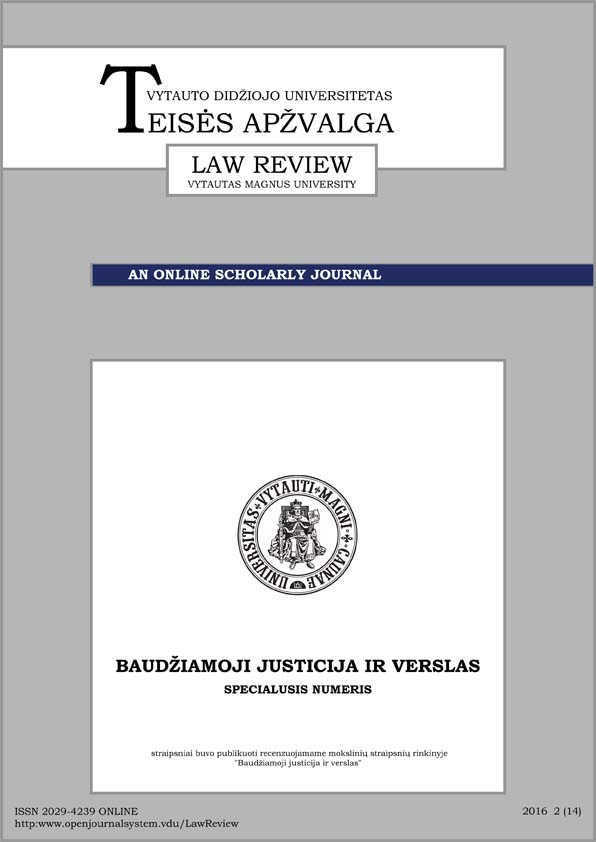Kaltės institutas baudžiamojoje kasacijoje
Rules and Principles Regarding the Establishment of Guilt in Criminal Cassation
Author(s): Jonas Prapiestis, Darius PrapiestisSubject(s): Law, Constitution, Jurisprudence, Criminal Law
Published by: Vytauto Didžiojo Universitetas
Keywords: Criminal law; Institute of guilt; Degrees of guilt; Criminal cases in Court of Cassation
Summary/Abstract: Straipsnyje analizuojama kaltės samprata ir jos reikšmė, kaltės instituto probleminiai aspektai bei kaltės rūšių atribojimo Lietuvos Aukščiausiojo Teismo jurisprudencijoje klausimai. The article introduces analysis of subjective grounds for guilt – a necessary condition for criminal liability of every person. Guilt is defined as a condemned and punishable by the state culprit’s integral relation (either intentional or through negligence) with the crime or criminal misdemeanour. The article reveals guilt’s connection with general attributes of a criminal act (age, capacity) and puts forward a justification for a state’s right and obligation both in legal and social sense to punish culprits. The article is based on research of application of guilt concept in case-law since the Lithuanian Criminal Code came into force (May 1, 2013). It shows that occasional defects and mistakes occur as unclear, ambiguous conclusions about forms, contents of guilt or as inconsistent characterizations of guilt forms, separate features of its sorts. Also, consequences caused by these mistakes for participants in the criminal process are evaluated. The article also explores provisions of criminal law which determine the concept of guilt. Analysis led to conclusion that reckless guilt in the Criminal Code is defined insufficiently, because it does not provide any description of intellectual reckless guilt (criminal negligence) or is described only partially (criminally false assumption). In justification of negligent guilt in culprit’s criminal act, objective and subjective criteria should be used for both forms of negligence. Also, differences and similarities of criminal negligence and criminally false assumption are presented.
Journal: Teisės apžvalga
- Issue Year: 2016
- Issue No: 2(14)
- Page Range: 48-61
- Page Count: 14
- Language: Lithuanian

